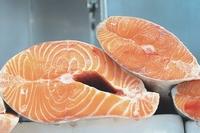How should the woman care for the heart?

Among young people, the risk of cardiovascular problems is much lower for women than for men. However, from menopause, the woman gradually loses the cardiovascular protection provided by estrogens, so at 10 years the difference between sexes disappears altogether.
So if you are a woman and want to keep your heart young and healthy, follow these tips.
Controlling bad habits
Healthy lifestyle significantly reduces (in some cases almost half) the incidence and risks of these diseases. However, in recent years cardiovascular disease has increased considerably in women due in part to bad habits (tobacco, alcohol, stress).
Tobacco and pill
Smoking increases the risk of heart attack or stroke five times. Nicotine contracts the arteries, promotes the formation of coacles and reduces the blood supply of the heart, thus decreasing the supply of oxygen to the heart muscle. Tobacco also increases the risk of hypertension, even more so if in addition to smoking, women take oral contraceptives, this method increases
risk of venous thrombosis by production. Therefore, women should choose, continue to smoke or take the pill, especially from age 35.
Alcohol
Wine, if taken in moderation, can be beneficial. However, do not forget that excessive alcohol consumption is very harmful to the cardiovascular system, since alcohol increases blood pressure and fattening.
In addition, drinking the same amount of alcohol does more harm to women than men. So the woman should drink no more than a glass of wine or beer a day.
Encourage healthy habits

It is not about making terrible sacrifices, but about making some changes in our lives. Our heart will thank us.
Mediterranean diet
Saturated fats of animal origin (fatty meats, viscera, sausages, butter...) are the greatest enemies of your heart. However, vegetable fats that are used in many processed foods (pastries, pastry products, snacks, etc.) are also very harmful, since they are industrially altered so that food lasts longer.
In addition to completely dispensing with fatty foods, it is necessary to increase the consumption of blue fish (salmon, sardines, chicharro, bonito...) because it contains omega 3 fatty acids that protect the heart and arteries. In the daily diet you have to eat more food from plants (fruit, vegetables, legumes, cooked without fat) and more whole grains.
Practice sport every day
Women of all ages should spend at least half an hour a day doing some physical exercise: walking, cycling, swimming, dancing, some gymnastics... any exercise helps the heart pump more blood. Sport cleans the arteries and is also a good way to lower cholesterol and blood pressure.
Problems to watch
Certain circumstances, if not properly controlled and cared for, can harm health.
Overweight
Overweight causes hormonal and metabolic disorders harmful to the heart, especially when excess fat accumulates (in this case, higher risk of infarction). If the back of the waist is greater than 88 cm, in the case of the woman,

risk range
Inside, especially if you are over 45 years old.
Cholesterol
When 'bad' cholesterol (LDL cholesterol) builds up in the arteries, coduluses form that make blood circulation difficult. People with heart disease should consider the following values:
- Total cholesterol: 150-180 mg/dl.
- Good cholesterol (HDL): higher figure better. Minimum 35 mg/dl.
- Bad cholesterol (LDL). Always below 100 mg/dl.
Hypertension
Excessive blood pressure forces the heart to pump harder, causing muscle fatigue of the heart. Ideal measurements or values are the maximum pressure figure 120 mm Hg and the minimum 80 mm Hg. Exercise, fat reduction and salt elimination are the basic measures to control the problem.






